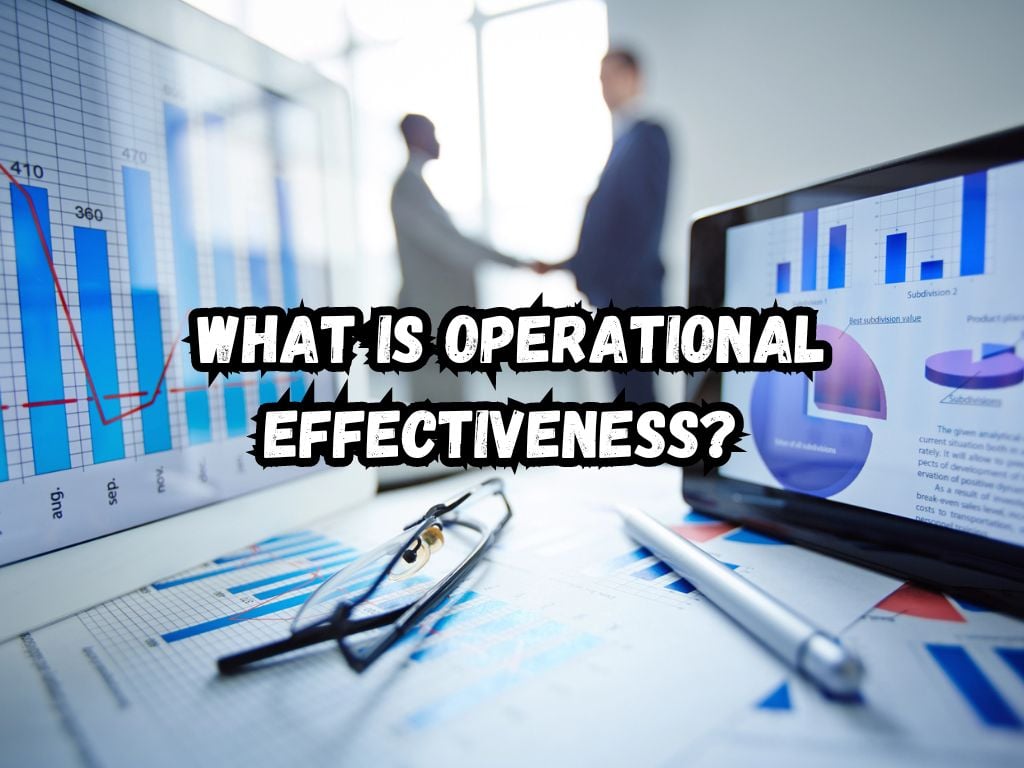In the fast-paced business world of today, operational effectiveness (OE) stands out as a crucial aspect for any company looking to thrive. But what exactly does it entail?
This article aims to unfold the essence of OE, shedding light on its definition, key components, and strategies to enhance it, along with addressing some common challenges and frequently asked questions.
What Is Operational Effectiveness?
Operational effectiveness involves performing similar activities better than rivals perform them.
It’s all about the nuts and bolts of business operations – streamlining processes, ensuring quality, managing resources proficiently, and making the best use of technology.
Unlike strategy, which is about choosing different sets of activities to deliver a unique mix of value, OE focuses on excelling in existing frameworks.
The significance of OE cannot be overstated. It’s the foundation that allows a business to achieve its goals by maximizing efficiency and minimizing waste. A well-oiled operational machine sets the stage for innovation, growth, and long-term success.

Key Components of Operational Effectiveness
Delving into the components of OE, we find several areas that businesses need to excel in to claim operational superiority:
- Process Optimization: This is the heartbeat of OE. By critically examining every process and workflow, companies can identify bottlenecks, redundancies, or inefficiencies. The goal is a sleek, smooth operation that delivers products or services in the most efficient manner possible.
- Technology and Automation: In the digital age, leveraging cutting-edge technology and automation is a game-changer. From production lines to customer service, adopting the right technologies can drastically increase productivity and reduce costs.
- Quality Control: High standards of output are non-negotiable. Quality control measures ensure that every product or service meets the stringent standards set by the company, as well as regulatory requirements.
- Employee Training and Engagement: A skilled and motivated workforce is essential to operational effectiveness. Continuous training and clear communication keep employees aligned with the organization’s goals and methodologies.
- Resource Management: Every organization has a finite set of resources. Effective management involves allocating these resources in a way that maximizes output and minimizes waste.
How to Measure Operational Effectiveness?
Measuring OE can be as complex or as simple as you make it, but it often revolves around Key Performance Indicators (KPIs), such as production costs, time to market, or customer satisfaction rates.
Tools like Balanced Scorecards or Six Sigma methodologies can offer insights into how well operations are running.
Strategies for Enhancing Operational Effectiveness
Achieving exceptional OE requires a strategic approach. Here are some strategies that companies can adopt:
- Process Re-engineering: Sometimes, incremental changes aren’t enough. Re-engineering involves a fundamental rethinking of business processes to achieve dramatic improvements.
- Lean Management: Adopting lean principles helps in eliminating waste throughout operations, from excessive inventory to unnecessary steps in a process.
- Continuous Improvement: A commitment to continuous improvement, through approaches like Total Quality Management (TQM) or the PDCA cycle, ensures that operations keep getting better.
- Innovation and Adaptability: The business landscape is always changing. Remaining open to new ideas and adapting to change swiftly can keep a company ahead of the curve.
Challenges in Achieaching Operational Effectiveness
Despite the best efforts, achieving OE is fraught with challenges. Resistance to change is a common hurdle, as established processes and mindsets are hard to alter.
Balancing the triangle of cost, quality, and speed is another perpetual struggle. Technological advancements, while beneficial, also demand continuous learning and adaptation.
Case Studies/Examples
Real-world examples abound of companies that have turned their fortunes around by focusing on operational effectiveness. For instance, a well-known automotive manufacturer reduced its assembly time and costs by adopting just-in-time production and lean manufacturing techniques.
These stories not only inspire but also offer practical lessons in implementing OE principles.

Pro Tips
Starting small with OE initiatives can lead to significant learnings and lesser resistance.
Engaging employees at every level ensures buy-in and fosters a culture of continuous improvement.
Lastly, it’s crucial to stay flexible, regularly review strategies, and be willing to adjust based on performance data.
Frequently Asked Questions
How does operational effectiveness differ from efficiency?
While efficiency refers to doing the same with less, operational effectiveness is about doing things better or in an optimal way, which can include being more efficient.
Can small businesses benefit from focusing on operational effectiveness?
Absolutely. Small businesses, perhaps even more than larger ones, stand to gain from efficient and effective operations to maximize limited resources.
What are some common pitfalls in pursuing operational effectiveness?
Overemphasis on cost-cutting, neglecting innovation, and resistance to change are common traps that businesses must avoid.
How often should an organization reassess its operational effectiveness strategies?
It’s a good practice to review operations annually, but one should also be ready to make adjustments whenever significant inefficiencies or opportunities for improvement are identified.
Are there any sectors or industries where operational effectiveness is particularly crucial?
While OE is critical across all sectors, it’s particularly vital in manufacturing, logistics, and service industries where operational costs significantly influence competitiveness.
Conclusion
Operational effectiveness is not just a buzzword, but a fundamental requirement for any business aiming for success in the modern economy.
While the journey towards OE can be challenging, the rewards in terms of efficiency, cost savings, and competitiveness are substantial.
Operational effectiveness is less about grand gestures and more about the consistent and diligent refinement of everyday operations.
The companies that master this nuanced art are often the ones that lead their industries, proving that success lies in doing ordinary things extraordinarily well.


 Tags:
Tags:










